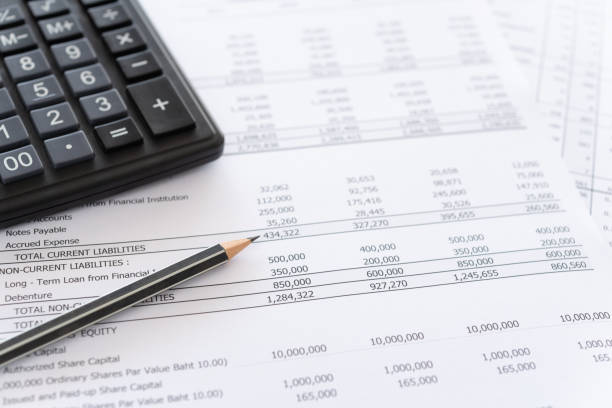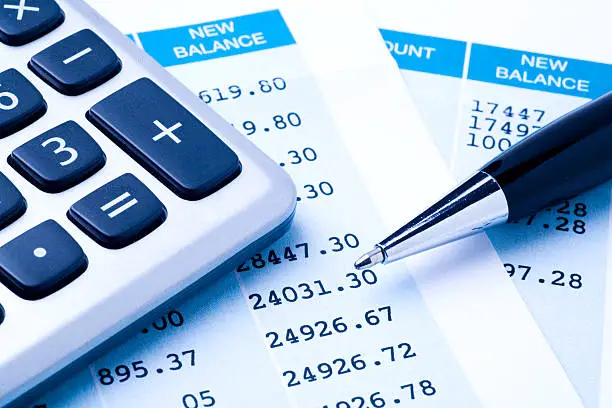Information presented on this web page is intended for informational and educational purposes only and is not meant to be taken as legal, financial, investment or tax advice. We do not accept any responsibility for any trading or investment related losses. Please review our disclaimer on before taking action based upon anything you read or see.
What do landlords look for in bank statements? A bank statement is a formal record that sums up the activities on your account during a specified time, usually one month. All incoming and outgoing transactions are documented, allowing you to see what happened to your money during that time.
Account holders should regularly analyze their bank records to keep track of their money, assess their spending patterns, and identify any suspicious activities or potential payment problems. The cost of purchasing and maintaining a home is high.
Instead of the more conventional equities and shares, most landlords invest in residential properties as pension sources. Due to the high expense of this investment, landlords are adamant about only renting out their homes to those they know can afford it and would take good care of their property. It should come as no surprise that seasoned landlords would prefer to keep their buildings vacant than take the chance of finding a careless tenant.
Landlords check your references to make sure you’ll be a decent tenant. Most landlords and referencing companies need bank documents from renters as evidence of income and on-time rent payments. Financial records are quite personal.
They can tell a lot about your lifestyle. Landlords have different rights to the same amount of financial information as banks and building societies. However, they may be utilized in situations like applying for a mortgage. Why do landlords need this information in the first place when there are other ways to demonstrate income and rent payments?
What do Landlords Look for in Bank Statements

- Record of Income
- At least three months’ worth of bank statements.
- A clear break-up of rent and other money paid.
- Evidence of any shared costs with the tenant, like insurance.
- Evidence of a small regular deposit, like a rent guarantee scheme or
- bond.
- Evidence of any mortgage payments.
- Evidence that there have been no large cash payments to anyone.
- Evidence that all bills are paid on time.
- Tips for tenants on what they should provide in their bank statements.
- No unauthorized deductions from deposited funds
- No unexplained transactions
Record of Income
It’s crucial to remember that the revenue you report represents the money you have received, not the amount you still have in your bank account at the end of the day. You must employ a simple system for your accountant to understand.
The less complicated, the better; a handwritten cash book with the date, cash receipts, and credit card receipts will do. Alternatively, you might enter the data on a spreadsheet.
You can save time by having the spreadsheet total each week, month, or year for you. It is crucial to begin keeping track of profits on the first trading day. It is more difficult to catch up and get it accurate the later you start.
So, regardless of how little your business is, begin tracking your money from the very first day. It is crucial to begin keeping track of profits on the first trading day. The more time you wait before you.
At least three months’ worth of bank statements.
We may require three consecutive months of bank statements to verify that you can pay any prospective loan repayments while expanding your firm. These statements must be recent, within the last three months, and contain information on transactions from the previous year.
A clear break-up of rent and other money paid.
Most people renting a place in the past are certainly aware of the term “breaking the lease,” which refers to this process. Even in the best-case scenario, problems can arise from a housemate breaking the lease terms because rent still needs to be paid.
Breaking a lease can be more difficult than it already is when you consider the frequently challenging process of a breakup or divorce.
Evidence of any shared costs with the tenant, like insurance.
As a lease condition, a landlord may demand that a tenant maintain insurance. The tenant must consent to that condition. Tenants and landlords may negotiate this condition.
Liability coverage is typically included in renter insurance policies. In circumstances where they might be at fault for harm to a third party, another unit, or the building, this aids tenants.
Liability insurance will assist in covering the costs of the damage to the tenant’s unit and the other suite, for instance, if a fire starts in the tenant’s apartment and damages the other suite. Contents insurance is another option for tenant insurance.
This assists in defraying the expense of replacing the tenant’s belongings and personal possessions that were damaged by fire or flood.
Evidence of a small regular deposit, like a rent guarantee scheme or bond.
Deposit Protection is a scheme for businesses to that the government has given its approval. They also have the power to control ownership security and manage the go-backs, subtractions, and discussions involving deposits.
Many landlords think renting out a property without a deposit is OK. Even while it’s acceptable in some situations, it’s not advisable. The security deposit provides landlords with a cushion of money when the tenant mistreats the rental or steals or misplaces several of the landlord’s assets.
Evidence of any mortgage payments.
To demonstrate mortgage payments, any of the following evidence types are acceptable:
- a letter from the mortgage company
- a statement from the mortgage company
The evaluation of your application will be delayed unless any pertinent proof is provided.
Evidence that there have been no large cash payments to anyone.
A cash payment receipt demonstrates that a good or service was purchased using real money. The only way to confirm that money was transferred to the receiving party is to look at a receipt because there is no electronic record of a cash transaction.
Evidence that all bills are paid on time.
Paying your bills on time will save money and improve your credit score. You will not be assessed a late fee or penalty for paying your bills on time or receiving lower interest rates on your credit accounts.
Tips for tenants on what they should provide in their bank statements.
- Tenants should provide the account number, the bank branch provider, their full name, and their home address, and the start and finish dates of the statement are typically located at the top of the statement.
- Also, the complete list of transactions that occurred during the period covered by the statement is found next, including payments made into and payments made out of your accounts. Each transaction includes the date it was processed and possibly some information about the recipient or sender of the money.
No unauthorized deductions from deposited funds
Fixed Deposit Accounts are open for a specific, predetermined amount of time and need a specific deposit. The word “fixed deposit” denotes a deposit set in stone and is only reimbursable once a predetermined amount of time has passed.
Money is deposited into a fixed deposit account for a predetermined time, such as six months, a year, five years, or even 10 years. The funds put in this account are not subject to early withdrawal. The interest rate on fixed deposits varies depending on the amount, the length of time, and the individual banks.
No unexplained transactions
Any transaction or dealing that causes a person involved to have any worries or indicators that it could be connected to money laundering, terrorist financing, or other illegal conduct.
Frequently Asked Questions
How often should you provide a bank statement?
They may be released on a monthly, quarterly, or annual basis.
What content should you include in a bank statement?
A bank statement summarizes all the financial transactions that have affected your account within a specific time, including deposits, withdrawals, and transfers. Your bank statement could include the account’s opening and closing balances, account number, and other crucial account details.
Should you supply an audited financial statement?
Public firms must provide audited financial statements to the Security and Exchange Commission and their shareholders. Many businesses elect to have audits conducted even when they are not obligated to because they can provide important advantages.
Expert Opinion
Redact your statements; omit all information other than your rent and income. In this manner, you keep your information private while allowing your landlord to view what they need to. Request the name of a neutral reference agency. Good reference businesses typically secure user information more.






